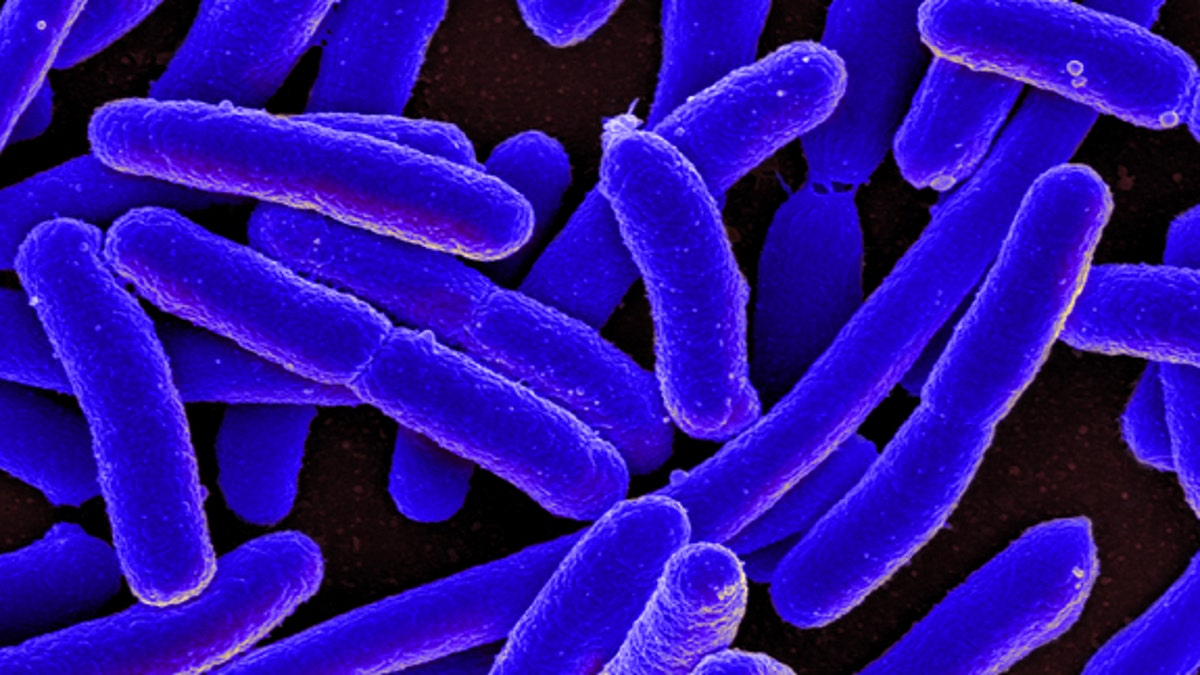
Colorized scanning electron micrograph of Escherichia coli bacteria, grown in culture and adhered to a cover slip. (National Institute of Allergy and Infectious Diseases, NIAID)
New Jersey researchers said on Monday they had identified perhaps the first strain of E. Coli bacteria in the United States with mobile genes that make it resistant to two types of antibiotics now considered last-line defenses against superbugs.
Researchers said the strain of bacteria was found in a 76-year-old man who was treated in 2014 for a complicated urinary tract infection. Further analysis in 2016 showed the bacterium carried mcr-1, a gene that creates resistance to the last-ditch antibiotic colistin. It was also shown to carry blaNDM-5, a gene that blocks effectiveness of carbapenems, which are considered medicine's most reliable current antibiotics now that bacteria have found ways of outwitting other families of antibiotics.
Results of the study were reported on Monday in mBio, an online open-access journal of the American Society for Microbiology.
Although the patient was treated successfully with other antibiotics, researchers said the bacterium had the potential to spread and become a powerful superbug.
"The good news is that this did not cause a major outbreak of drug-resistant infection," said senior study author Barry Kreiswirth, director of the Public Health Research Institute Tuberculosis Center at Rutgers University in Newark, New Jersey.